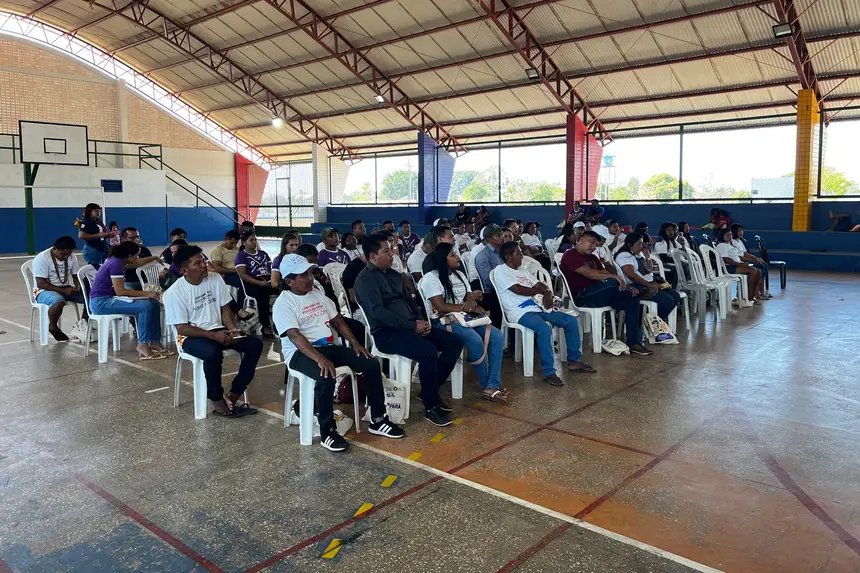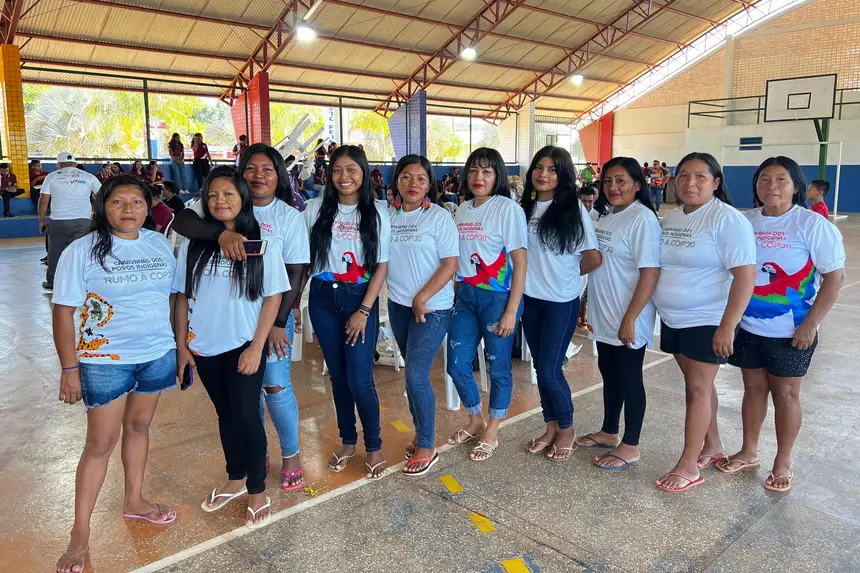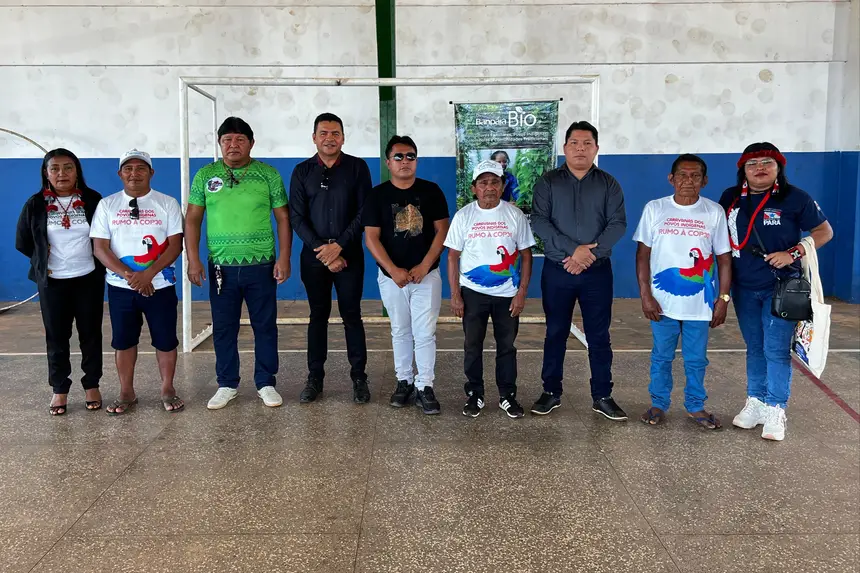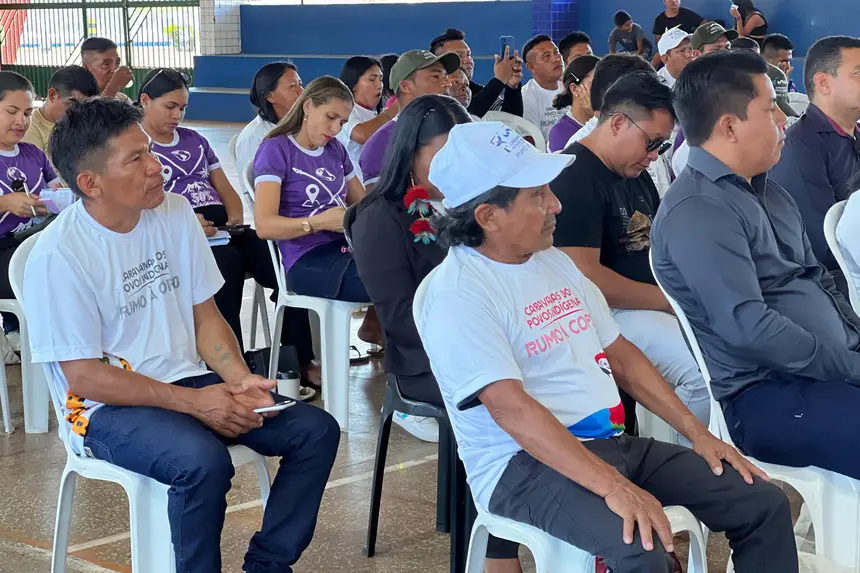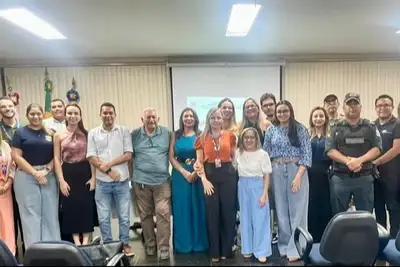Indigenous Peoples Caravan to COP30 Arrives in the Jacareacanga-Itaituba Ethno-region
Mobilization led by Sepi continues to strengthen indigenous leadership in the preparations for the climate conference and arrives at another ethno-region of Pará
The Indigenous Peoples Caravan to COP30 continues to travel through Pará and is now preparing to land in the ethno-region of Jacareacanga and Itaituba, in the southwestern part of the state. The program will take place this Thursday (31) at the Ludeilson Baia Court in Jacareacanga and will gather indigenous leaders from the nine indigenous lands in the region.
The Caravan is promoted by the Government of Pará, through the Secretary of Indigenous Peoples of Pará (Sepi), with the support of Banpará, and aims to enhance active listening in the territories, promote the joint construction of public policies, and prepare indigenous peoples for effective participation in COP30, which will be held in November in Belém.
The ethno-region includes the indigenous lands of Munduruku, Praia do Mangue, Praia do Índio, Kayabi, Sai-Cinza, Daje Kap Ap, Sawre Bapi’n, Sawre Jaybu, and Sawre Maybu, with the presence of the Munduruku, Apiaká peoples, and also isolated indigenous peoples living under full protection.
During the caravan, Sepi conducts workshops, discussion circles, and listening sessions with local leaders, addressing topics such as climate, indigenous rights, education, culture, territorial protection, and proposals for the climate conference.
“We are arriving at another ethno-region with the certainty that each stop of the Caravan is an important step in building the COP30 we want: with indigenous peoples at the center of decisions. The ethno-region of Jacareacanga-Itaituba plays an essential role in this process, with peoples who have resisted and protected the forest for centuries,” highlights Puyr Tembé, Secretary of Indigenous Peoples of Pará.
The Caravan has already passed through other ethno-regions gathering hundreds of indigenous leaders in dialogue and articulation spaces. The expectation is that the initiative will cover all eight indigenous ethno-regions of Pará, gathering proposals and consolidating strategies to ensure indigenous representation at COP30.
With the holding of COP30 in the Amazon, the indigenous peoples have reinforced their position as protectors of the environment, the forest, and life, and the Caravan has become a legitimate space for joint construction with the State.
The presence of Sepi in the territories reinforces the role of the State alongside indigenous peoples, so that they are protagonists in decisions about climate, the forest, and the future of the planet.


